Yami Gautam is the poster child of fairness creams in India. Recently, she was seen in the movie Bala playing the character of Pari. The movie amongst other things aimed at addressing the stigma attached to dark skin in Indian society, albeit with a fair woman playing the character. Nikita, played by a tanned Bhumi Pednekar is a dark-skinned woman and Pari plays the societal binary. While representing the character, she took upon herself the burden to justify her role as the face of the highest-selling fairness cream brand.
A Complicit?
Personal insecurity has been the favourite bait of capitalistic establishments. While appearing to be the good samaritan for our ‘needs’, these establishments are silently creating a consumer base for their products. And what better way than encouraging you to ‘rise above your flaws’ by persistently bringing in to your attention the fact that you are ‘flawed’.
“Short-heighted?” Drink Complan
“Fat?” Sweat it out with sauna belt.
“Dark Skinned?” Fair and Lovely is here to your rescue.
Fairness is not just a concept that defines beauty in our society but it also defines morality and virtue. Hence, the discourse of fairness is the genesis of not just racist beauty standards but also inappropriate moral standards. Although it can be argued that we are collectively moving away from the former, it is only so in theory. We still need to cover a long way to make up for the collateral damage that this discourse has had.
THE MASSIVE RESOURCES SPENT ON THE MARKETING OF SUCH PRODUCTS ARE ALARMING, BUT MORE DISTURBING IS THE SANCTION THAT THESE PRODUCTS HAVE RECEIVED OVER TIME BY INFLUENTIAL FIGURES
Also read: Un-Fair And Not So Lovely: Capitalism And Colourism In India
If the constant reiteration of the need to stand up to the societal definition of perfection wasn’t enough, surveillance capitalism is here to repeatedly suggest you the best product you should buy to work on those ‘flaws’. It will show up on your WhatsApp chat saying ‘dark is beautiful’, but will end up suggesting you the best skin lightening creams, a day after on your Facebook wall. And this is the digital alternative to our neighborhood pry.
The massive resources spent on the marketing of such products are alarming, but more disturbing is the sanction that these products have received over time by influential figures.
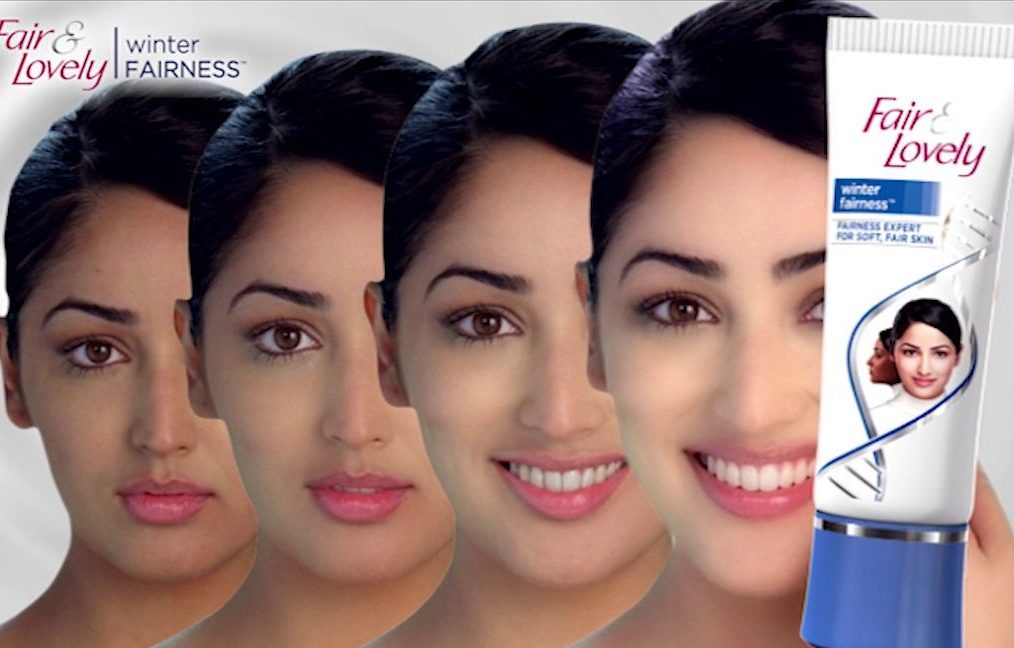
In a following interview with The Quint, when asked if she ever considered giving up endorsement of the brand, Gautam replied,
“Of course I did. It started very strongly, especially when I didn’t even know the meaning of being trolled. When I got trolled, I was fairly new to this industry. Before that people didn’t know that right after Vicky Donor when it turned into an endorsement, I had a meeting with the brand. I said, ‘Listen guys, there is no problem promoting the brand. You have fairness and tanning creams abroad. But the idea to show that not being fair is something to be unhappy about, that’s not right.’ Maybe the name Fair and Lovely has been retained, so it is difficult to see beyond that, but the four faces are gone. All this ‘gorapan (fairness)‘ and the kind of ads which were being made, thankfully aren’t there anymore. They shouldn’t be. The fact that I am part of a film like Bala, where the issue is highlighted, shows that I know what I’m doing.”
we’re still in the colonial hangover where our actions are justified by what the Whites do.
Fair And Lovely And Its Evolving’ Concept Of Fairness
Fair and Lovely has had years of record advertisement downgrading one’s skin colour. While we can blame it on the societal transition, it is also to be blamed on such capitalistic establishment which gave leverage to these societal narratives in the first place. In a 2017 article that appeared on The Drum, the then market share of Fair and Lovely was about 50%-70%. The article categorically said, “In 1975, Hindustan Unilever launched a fairness cream called Fair and Lovely which currently holds a 50-70% share of the skin whitening market in India, a market that is valued at over $200m. Fair and Lovely recently entered the INR 2000 crore club, which emphasizes the fact that the fairness appeal cuts across regions and cultures in India.”
The incessant chase for fairness cream is not going to see an end anytime soon. In a paradigm where the societal pressure is so immense, Gautam’s comment appropriating the sale of fairness products because “they sell it abroad too”, is symptomatic of a much larger issue. Firstly, we’re still in the colonial hangover where our actions are justified by what the Whites do. Secondly, the west has seen many egregious cases of racism through the annals of history; hence they must not be a scale of judgment.
But since the actor asserts that the product has gone through significant changes related to its branding, let’s look at the evolution of the Fair and Lovely ad campaigns.
Let’s consider this advertisement, which has layers of unacceptable appropriation of patriarchy. The father wishes they had a son because the daughter cannot earn enough for their household chores. However, the daughter overhears her father and is now all set to become the ideal ‘son’, except she is dark-skinned. But then Fair and Lovely happens and now she is a fair and confident air hostess, thus implying that confidence is a by-product of fairness only.
The gender gap in the job sector that leaves the father wishing for a son, the lack of confidence among dark-skinned women and the obsession with societal beauty standards that lands her no appropriate job when she had a darker complexion, are all indicative of a darker social reality. Instead of taking measures to eradicate it, from time immemorial, Fair and Lovely has exerted upon people its dire importance.
In this video too, the father is determined in getting his daughter the perfect fair skin through ayurvedic methods because the ‘modern beauty company’ wouldn’t enroll her otherwise. Consequentially, she uses the ayurvedic cream and is now radiating fairness and confidence leaving the former beauty company appalled. The ‘modern beauty company’ is a euphemism, a rather literal one, for the beauty standards that our society has and the protagonist represents all those who’ve been ostracized from this society based on their appearance.
Also read: Colourism In India: Dark Is Not A Dirty Word
However, both the ads also run a stereotype of transformation. Both these women’s dark skin and low confidence are accompanied by tawdry appearance. A fairness cream has not only left them with better clothes but also salon set hair. And that’s the metamorphosis these brands want us to see. If we see more recent advertisements for the product, the brand now promises to give you “HD glow”. Watch this video for instance:
In all these videos, the brand had consistently insisted upon nikhaar (glow) rather than directly addressing fairness. Nonetheless, it has always implied to show ‘glow’ by lightening the skin colour. While the nuances of the concept of a ‘glow’ skin can be debated, the brand has never pondered upon that, as is evident from their advertisements. It does not talk about people with different skin tones. However, it constantly and indirectly reiterates that the product caters to the “needs of fairness”. Therefore, to say that advertisements centering on fairness are things of the past, is a gentle manipulation of the grim reality.
So, while Gautam says, “I know what I’m doing,” a little retrospection on her part and our part as well would do no harm.
Featured Image Credit: Hindustan Unilever Limited
About the author(s)
Nivedita is a graduate in English Literature and Economics from Delhi University. She is a reader beyond genres and finds solace in the works of Virginia Woolf and Sylvia Plath. She’s usually up to finding conspiracies in stories and sees her future as a journalist.
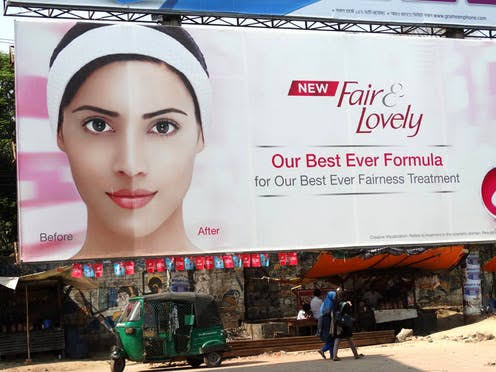
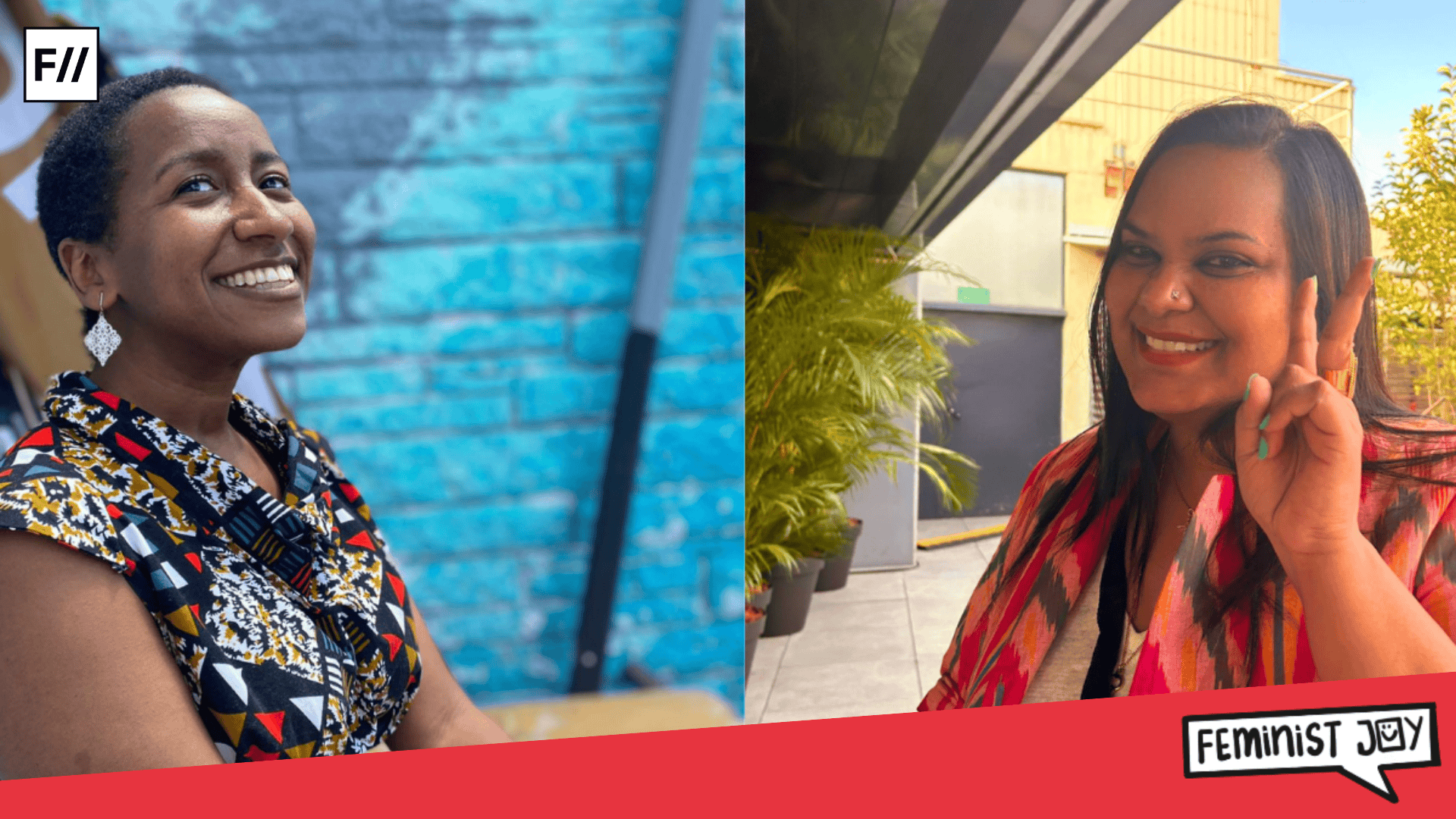
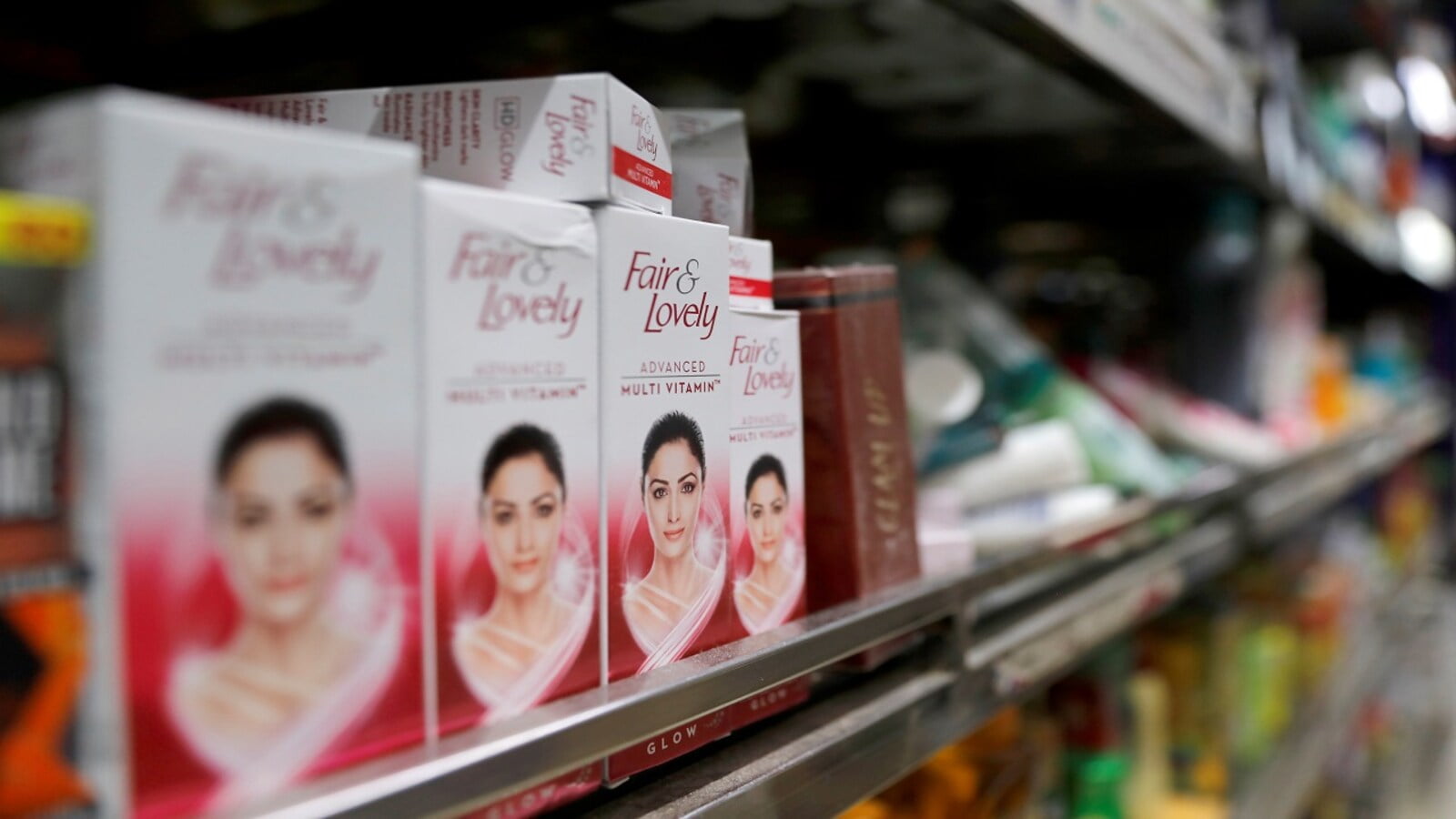
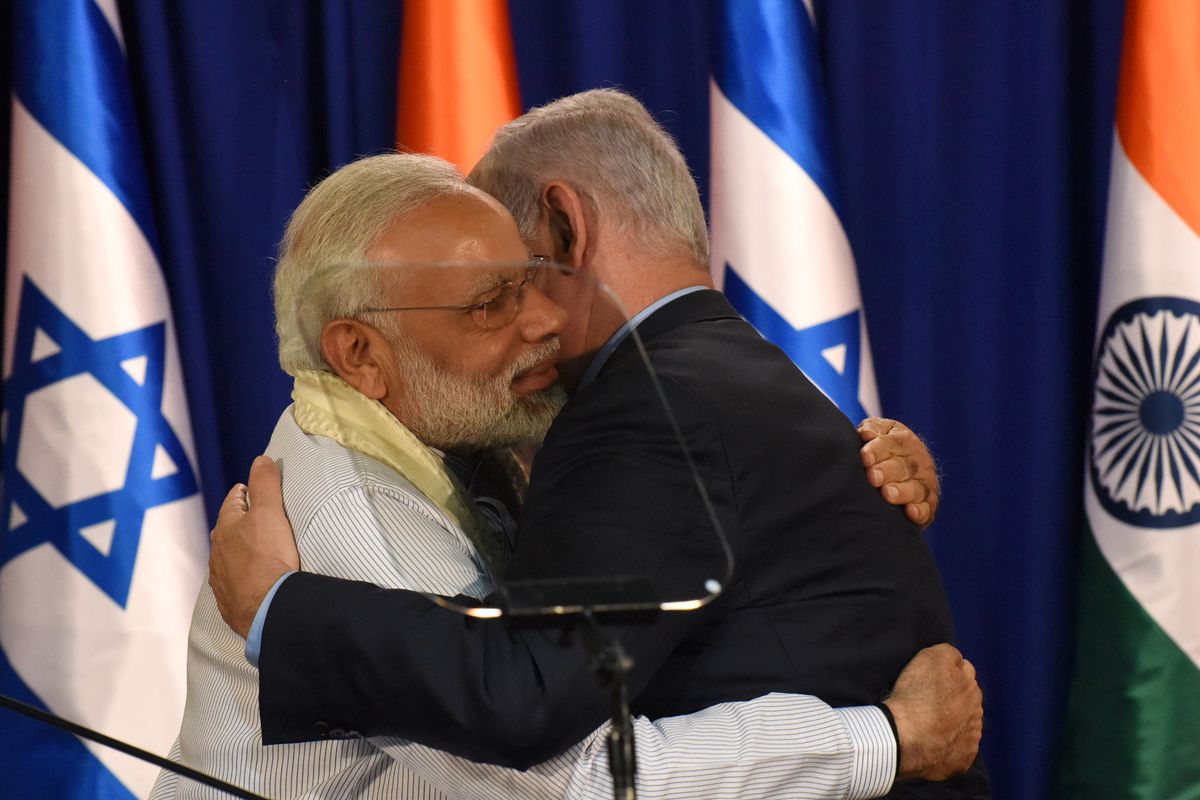

And actresses like Yami Gautam proudly endorses fair and lovely.